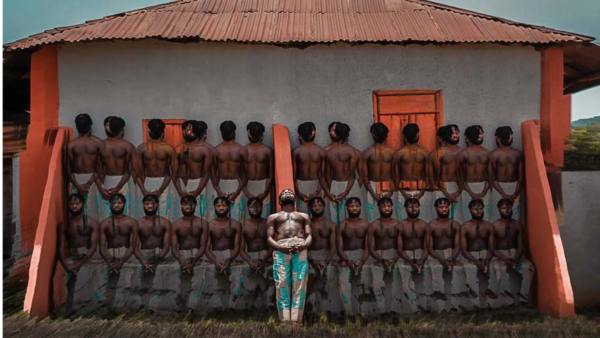

Internationalisation of the design sector – 23 projects selected
In the first round of the Internationalisation of the design sector Grant Scheme in 2024, 23 projects were selected. Mireille de Koning, programme manager of the Internationalisation of the design sector Grant Scheme, reflects on the round.
5 August 2024
general impression
More than half the applications this round fell under the discipline of design, and this regularly included the sub-discipline of social design. The number of applications in the disciplines of architecture and digital culture was fairly equal this round, thanks to an increase in the number of applications in the discipline of digital culture compared to 2022 and 2023.
According to the advisory committee, the positively assessed applications were well developed with a clear rationale for the chosen topic and the set-up of the collaboration and research. The committee was also positive about the topicality and relevance of the chosen topics in many of the applications. It did note that while most of the applications positioned themselves as progressive, few projects reflected on political shifts in the Netherlands and internationally (especially in Europe), and their implications.
In terms of themes, the committee saw a continuing trend of applications focusing on social, societal and climate-related issues. Several projects focused on water, based on different design forms and approaches, with a number of projects involving non-humans
or water bodies in the proposed activities, such as the application from the Ambassade van de Noordzee. In architecture, the committee also saw several applications with a focus on communities living with and managing water. In digital culture, the committee saw a number of projects focused on AI and the role of technology in creating awareness about current local and global challenges. Some examples of selected projects are:

HOH Architecten – Re-thinking re-use
Re-thinking re-use is an alternative approach to architecture and heritage via a Dutch-Japanese cultural exchange. The project was initiated by HOH Architecten and JNACA, with support from the RCE. While Japanese building culture embraces a tradition of ‘demolition-construction’ that focuses on the future, Dutch culture instead looks to the past for solutions. The project welcomes the reuse of existing buildings as an alternative to demolition or preservation, and as a response to the building industry’s contribution to the sustainability crisis. Through collaboration between Dutch and Japanese experts, architects and universities, and with the aid of a series of workshops, public lectures and publications, they aim to establish a new guiding balance. This will be exhibited at the Osaka World Expo 2025.

Anastasija Egges – Herring (fishing) archives
For the Herring (fishing) archives project, Anastasija Egges is examining the aftermath of Brexit in relation to fishing communities and the dangers of the intended limits for fish stocks. The study documents the divisions in the North Sea from three different perspectives: the small-scale fishing communities, the fishing industry and the herring schools. The aim of the project is to understand the future of fishery by looking at the current situation from three different viewpoints and by trying to bring them together in a shared conversation. According to the designer, fishing should be considered a regenerative practice rather than an extractive act. That is why it is essential to listen to voices that have the knowledge and practical experience of how this can be achieved, about connecting, reconnecting, learning and unlearning, adapting and acknowledging in order to survive and thrive together.

Ritvik Kushu – Living knowledges of the endangered
The project Living knowledges of the endangered, led by photographer Jet Siemons and designer Ritvik Khushu, takes place in the Netherlands and in Malabar (present-day south-west India). This project brings together archival material, insights, stories, materials and connections. By doing this, the project partners hope to contribute to the reformulation of ‘disrupted’ knowledge, and the social and spiritual context in which this knowledge was created. The project combines decolonial theory, a design question and marginalised mysticism. Focus is on the question: what would it mean to design, archive and work based on the perspective of the cosmological other? The project mainly focuses on documenting, preserving and reviving indigenous healing traditions and their social and spiritual context. The first phase lays the foundations of the project. This phase involves building networks, collecting extensive material and developing prototypes for new archiving strategies.
Click here for all the selected projects in Internationalisation of the design sector in 2024.
numbers
Of the 54 applications taken into consideration, 23 are receiving grants. This brings the percentage of applications receiving grants to 43%. The budget available for this round was € 375,000.
The next deadline of the Internationalisation of the design sector Grant Scheme is 1 October 2024.







